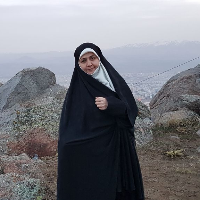Formulation of methods of dealing with extra-religious ideas in the works of Islamic education thinkers
The subject of this article is to examine the ways of encountering extra-religious ideas in the works of Islamic education thinkers. The purpose of this research is to critically examine and consider the differences in the situations, circumstances, intellectual preferences of the writers and their different goals in choosing a specific way of dealing with extra-religious ideas, and the method of hermeneutic analysis has been used in it. The results show that as the educational approaches are different, including philosophical, institutional, and narrative, diversity can be seen in the methods of entering extra-religious ideas, each of which has its advantages and limitations, And it can be classified along with some examples in the titles of independence-oriented (Shari'at Madari), fundamentalist (Ilm Al-Hadi), progressive competition (Safai Ha'eri), integration (Bagheri), protectionist (Qutb), instrumentalist (Mazlumi), Pathological (Kilani) and Responsive (Mothari) and in three general categories of impact on the audience's vision, strategic and dealing with atheistic ideas (for general, special and expert audience).
-
Women's Self-objectification and the Role of Spiritual Self-care Inspired by the Qur’anic Interpretation "Judgment Day" in its Treatment
Sayyedeh Jamileh Hashemnia, Javad Iravani *, Tahereh Javidi Kalate Jafarabadi, Ali Jalaian Akbarnia
Mishkat, -
Hidden Unemployment During Studies of Humanities Students of Ferdowsi University of Mashhad: Factors and Solutions
Tahereh Javidi. K. J*, Afsaneh Abdoli
Iranian Bimonthly of Education Strategies In Medical Sciences,


